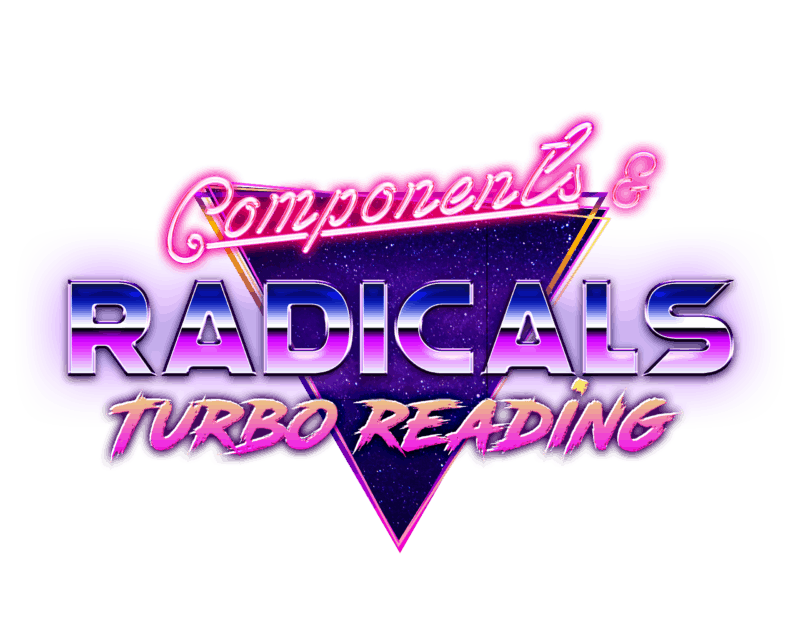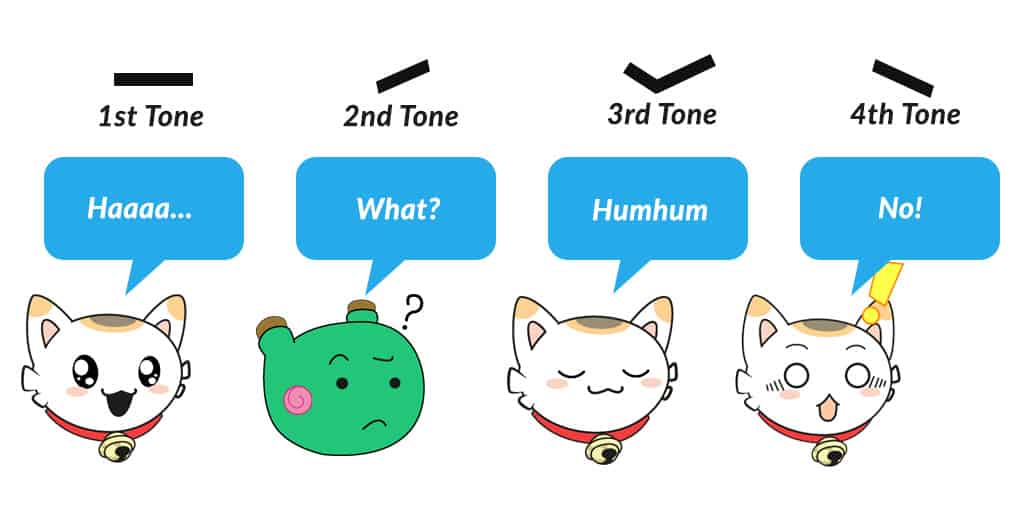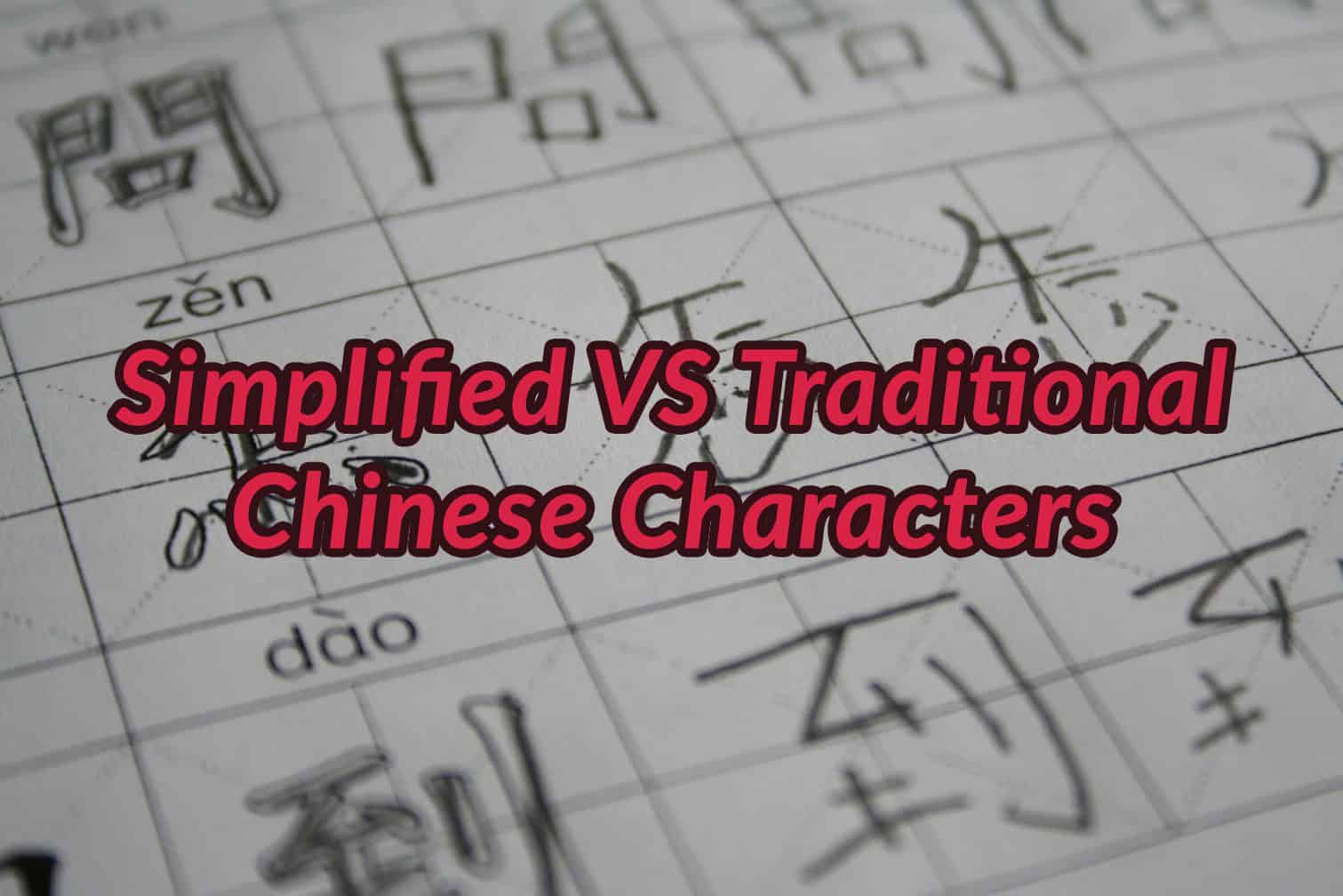Numbers are everywhere and when learning Chinese you will very soon get to know the basic numbers and count using Chinese. Right after that, there’s the big numbers, you will count even higher: at first up to 100 (一百), then 1000 (一千) and finally 10000 (一万). These are the basics to know, but what if you want to use the really big numbers and the amount of zeros is getting out of control? Find it out how by continuing reading.
read moreChinese learning tips
Chinese components & Chinese radicals World: Up, close and personal with Chinese characters
Ninchanese March 12, 2020Introducing a whole new world on Ninchanese: The Rad Way to Learn Chinese Characters! It’s chock-full of rad Chinese components to discover. What’s so rad about those? Easy: they’re your key to understanding Chinese characters a LOT better. Let’s dive in.
read moreWriting Chinese characters: The purpose
Ninchanese February 28, 2020I think at one point everyone who starts learning Chinese asks themselves the same questions about writing Chinese:
- Do I need to learn to write Chinese characters?
- When is the best time to begin with them?
- Where do you start?
- How do you write Chinese characters? Are there any rules?
With this article, I want to share a bit of my experience in writing characters and maybe a helpful additional way of learning Chinese. To be clear, I’m not talking about the art of Chinese Calligraphy but just casual hand-writing. Handwritten Chinese with a pen a piece of paper.
read moreHow to review words on Ninchanese when the number is too high
Ninchanese November 8, 2019When you want to learn Chinese, you need to go for it and work on it every day. Everyone will tell you that. It’s true for every language you are learning. Regularity is the key. As is reviewing words you’ve just learned, so they go from your short-term to your long-term memory. We know, however, that it’s not always easy to stay focused and to review daily. It’s even more complicated when you’re a beginner to intermediate learner since you can’t enjoy Chinese content from TV (for example) passively yet. So, you may skip one or two days. That’s alright! But what happens when you skip learning for weeks? Or even a month? Your words to review start to pile up. Is there any way to start learning Chinese again? To handle your word reviews? The short answer is YES.
read moreShould I do more than my daily Chinese character learning reviews? If yes, then what?
Ninchanese April 4, 2019Recently, a Chinese learner phrased something in a particular way. He reached out to us and said: “I have a memory problem. How can I do more reviews?”
read moreThe super hidden (and insanely useful) tone trick no one tells you about
Ninchanese December 7, 2018An easy way to memorize and pronounce tones! The first time you hear a Chinese speaking a sentence, were you like “wow, I understand nothing and why do they sound like they’re going on a rollercoaster”? No wonder, you’re hearing tones for the first time! They may seem daunting, but I have a secret to tell you. There’s a super easy tone trick to know: you’re actually already using tones in English, so all you need to do is apply that knowledge to your Chinese! Read on so I can explain more.
read moreA-ya! 20 Chinese interjections to absolutely know!
Ninchanese November 9, 2018The more you listen to Chinese speakers, the more you start noticing the little sounds that pepper their discourse. It’s what we call Chinese exclamative particles or interjections 语气词 yǔ-qì-cí.
read moreSimplified or Traditional Chinese: which should you learn?
Ninchanese November 1, 2018A very common question beginners in Chinese have is: should I learn Simplified or Traditional Chinese? To get to the bottom of that, you need to know: what’s the difference between the two? Why are there two forms? Which should you pick?
So, let’s see the difference between Traditional and Simplified Chinese characters. And, let’s find out which Chinese character form is for you!
read moreSometimes you think you know a Chinese word, but when you try to type it in your Chinese IME, you can’t find it. I’m sure this has happened multiple times to you. It could be for various reasons, maybe you don’t have the right pinyin. Or maybe there’s a spelling mistake in what you’re typing. How do you know?
How do you find the Chinese character you are looking for?
read moreWorld HSK 5: An Epic world for Epic Chinese learning
Ninchanese September 13, 2018The HSK 5 world is now complete! The Nincha Team has been working tremendously to create and offer you a complete and interactive course to learn Chinese at an advanced level.
read more









